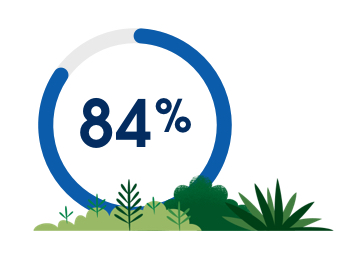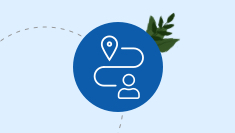The Transformation Playbook
President and Chief Product Officer, Salesforce
The global pandemic accelerated change across nearly every aspect of our personal and professional lives.
The question for all of us is how best to act when there’s still so much uncertainty.
The key thing we’ve learned, alongside our customers, is that COVID-19 is an accelerant — an accelerant for change that had already begun. It supercharged a pivot to customer-centricity, to rethinking how you serve your employees and customers, the importance of employee experience, and how to reinvent yourself for the all-digital, work-from-anywhere world.
Yet conventional attitudes, silos, and legacy systems often stand between leaders and customer-centricity. And while technology can help, it alone is not the answer. Simply applying new technology to old ways of doing things won’t magically change the way your teams deliver a great customer experience at scale.
I’ve noticed transformation happens when leaders stop focusing internally on technology, products, departments, or systems — and recenter around their customers.
It’s easy to say, harder to do. We hope this playbook helps you confidently lead change. Our work with thousands of C-suite leaders from organizations of all sizes and industries has uncovered patterns of what it takes for successful companies to get it right as they evolve to be more customer-centric.
Whether you’re a CEO in financial services, a CIO in B2B tech, or another leader ready to make meaningful change, I hope this playbook helps you bring the customer closer to the center of your business.
Bret Taylor
How to Accelerate Change with This Guide

That’s why this playbook is focused on an approach that puts the customer in the center of your feedback loop and innovation cycle. It provides “no regrets” moves every leader can make to begin now.
To work toward this transformation, get familiar with two key terms that we’ll reference throughout this playbook: mindsets and disciplines.

Mindsets: Mindsets are the common assumptions that shape how people behave, either holding companies back or propelling them forward.
Disciplines: Disciplines are customer-centric business practices that unite employees, departments, and partners to solve customer needs with the full force of the organization.
Across industries and functions, the core challenges are often the same — and so are the key steps to drive a customer-first revolution. This playbook’s six chapters will begin your journey with thought starters and practical tips.
Chapter 1: Successfully Meeting the Digital Imperative Depends on Your Mindset
While the pandemic has accelerated massive change, one important lesson we’ve learned is that your industry does not define your destiny.
In fact, there have been winners and losers in every industry, depending on the actions of individual companies. We’ve seen a performance gap between those leaders who lean into digital and those who are waiting for the “old normal” to return. In general, companies have had one of these responses.

Those with a RENOVATE mindset approach things with a wait-and-see attitude. Their workforce is not digitally enabled, they’re not building ways to anticipate their customers’ new needs or make sense of the data they have, and their leaders don’t understand digital. As a result, their growth plummeted in the worst of the crisis, and as the broader economy recovers, they’ve rebounded much less than others.
This is in stark contrast to those with a TRANSCEND mindset. Companies that were born digital, even before COVID-19. Amazon, Netflix, and Zoom are well-known examples here. They were built for this all-digital world. They designed around their customers’ evolving needs and are laser-focused on speed, simplicity, and personalized experiences.
Many of our customers have what we call an EVOLVE mindset. They weren’t born digital, but they are deliberately refocusing on their customers’ needs. Most were already on a journey towards digital before COVID-19, but the crisis enabled them to smash through old bureaucracy and change faster than anyone thought possible.

These companies share a clear imperative: to reinvent themselves for this digital-first, work-from-anywhere world.
Here are five customer-centric disciplines we have seen successful companies use to evolve and thrive through digital transformation. These are so critical to success in this new all-digital era that they are the foundation for how our Salesforce Customer Success teams help customers maximize the value they can realize across all Salesforce products.

Chapters
Related Content

Blog Post
What does Salesforce do?

Video
How Ford Plans to Transform an Icon

Report
How to Launch an Employee Experience Platform
More Resources

State of the Connected Customer

Create your Customer 360 in two simple steps.









